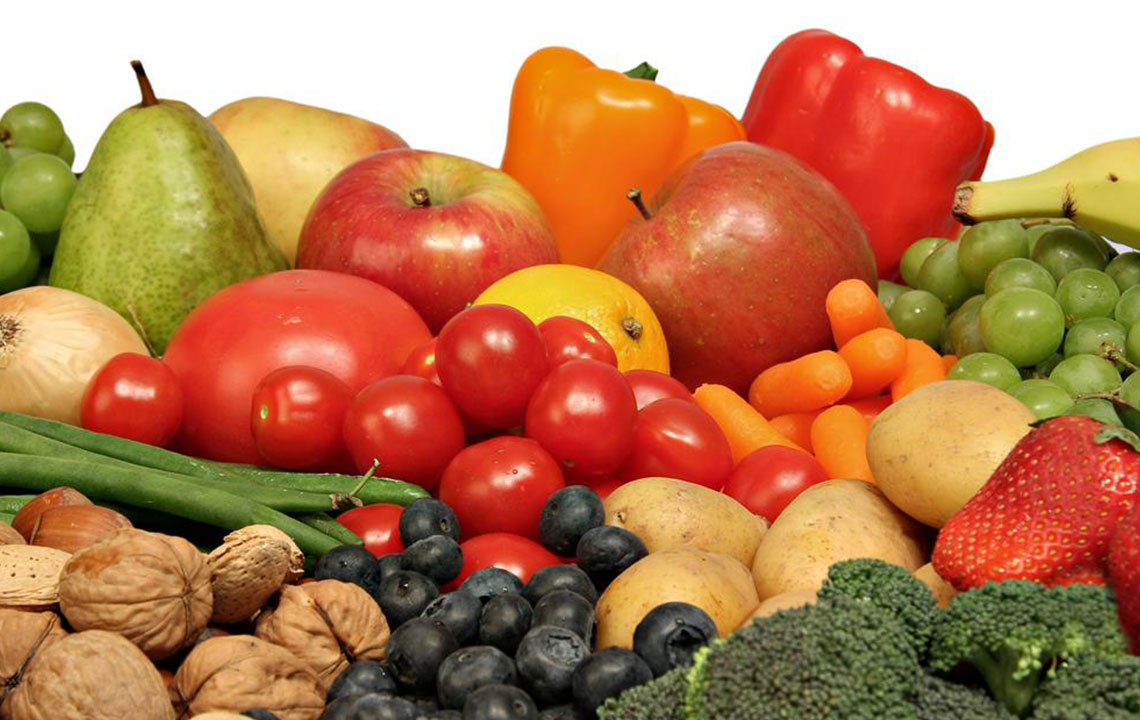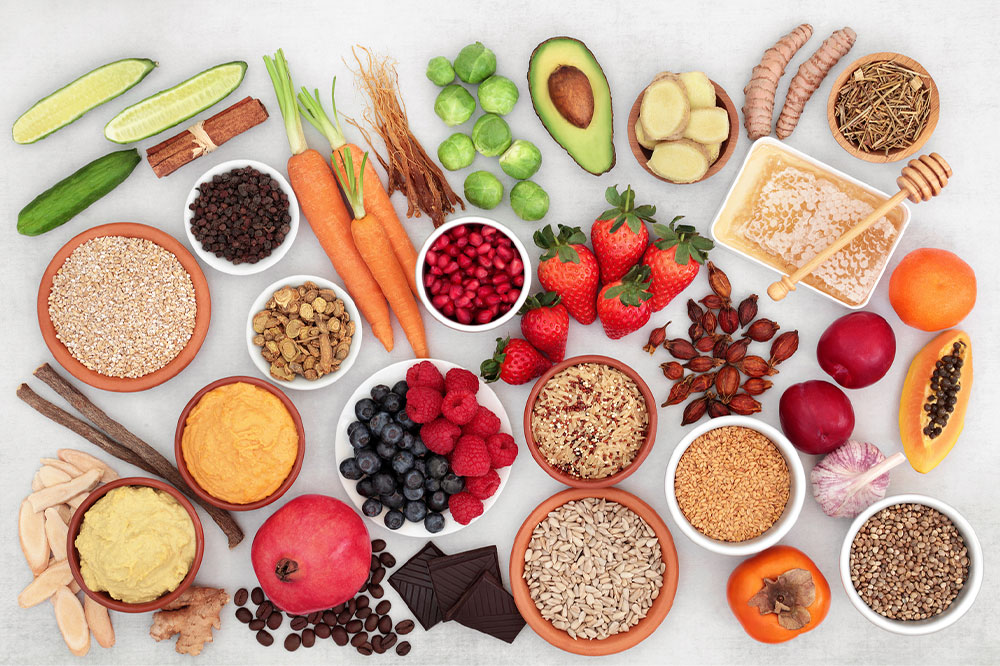Key Vitamins and Nutrients Essential for Managing Depression Effectively
This comprehensive guide details key vitamins and nutrients crucial for managing depression effectively. It emphasizes the importance of a balanced diet and professional medical advice, highlighting vitamin D, B vitamins, folate, omega-3s, magnesium, calcium, and vitamin C. The article explores how these nutrients support brain health, mood regulation, and emotional stability, providing practical dietary sources and supplement guidelines. Recognizing depression's complexity, it underscores the value of combining nutrition with therapy and medication for optimal treatment outcomes. Ideal for individuals seeking holistic strategies to enhance their mental health.

Key Vitamins and Nutrients Essential for Managing Depression Effectively
Depression, scientifically referred to as major depressive disorder, is a complex mental health condition that significantly impacts an individual's mood, thought processes, and daily functioning. It is characterized by persistent feelings of sadness, hopelessness, and a loss of interest in activities that once brought pleasure. The management of depression typically involves a multifaceted approach, including psychotherapy, medication, lifestyle modifications, and nutritional support. Recent research highlights the importance of certain vitamins and nutrients in supporting mental health and alleviating the symptoms of depression. Incorporating these into your diet may enhance overall treatment outcomes, but it is crucial to consult healthcare professionals before making any changes to your supplement regimen.
The Critical Role of Nutrition in Depression Management
The global prevalence of depression affects over 322 million people, cutting across all age groups and socioeconomic backgrounds. Its impact on quality of life, productivity, and overall well-being is profound. While psychological and pharmacological interventions remain the cornerstone of treatment, nutrition plays a pivotal role as an adjunct therapy. A diet lacking essential nutrients may exacerbate symptoms or hinder recovery. Conversely, diets rich in specific vitamins and nutrients can support brain chemistry, improve mood, and promote resilience against stress. Evidence suggests that a targeted nutritional approach, including supplementation when necessary, can serve as a powerful complementary strategy in managing depression. However, professional guidance from healthcare providers is vital to ensure safe and effective integration of vitamins into a comprehensive treatment plan.
Vitamin D: A Natural Mood Stabilizer
Vitamin D, often dubbed the "sunshine vitamin," plays a crucial role in regulating mood and mental health. Its deficiency has been linked to increased risk of depression, especially Seasonal Affective Disorder (SAD), which occurs during months with limited sunlight. Naturally, our bodies synthesize vitamin D when exposed to sunlight, but in modern lifestyles with indoor routines, supplements become a practical alternative. Dietary sources rich in vitamin D include fatty fish such as salmon, mackerel, and tuna, as well as fortified dairy products, eggs, and certain mushrooms. While supplementation can be beneficial, it is essential to seek medical advice to determine appropriate dosages, as excess vitamin D can lead to toxicity and health complications. Regular monitoring and professional guidance ensure safe and effective use of vitamin D in depression management.
B Vitamins: Essential Neurotransmitter Support
Group B vitamins, especially B-12 and B6, are integral to the synthesis of brain chemicals that regulate mood, energy, and cognitive functions. Deficiencies in these vitamins have been associated with symptoms of depression, including fatigue, irritability, and difficulty concentrating. Rich dietary sources include animal products such as liver, shellfish, dairy, and eggs, as well as fortified cereals and yeast. Supplementation with B vitamins under medical supervision can help correct deficiencies, reduce fatigue, and alleviate mood disturbances. Ensuring adequate intake of B vitamins, especially in individuals with restricted diets or absorption issues, can significantly support mental health. Proper nutritional support is vital in the holistic approach to depression treatment.
Folate (Vitamin B9): Vital for Brain Function
Folate, also known as vitamin B9, is a water-soluble vitamin essential for DNA synthesis, brain function, and emotional regulation. Deficient folate levels have been linked to increased risk of depression and poorer response to antidepressant treatments. Food sources high in folate include leafy green vegetables like spinach and kale, legumes, asparagus, avocados, and liver. A balanced diet rich in folate can support mental health, but in some cases, folate supplements may be prescribed to boost levels. As with other nutrients, it is important to consult a healthcare professional before initiating supplementation, especially for those on medication or with underlying health conditions.
Additional Organic Nutrients Supporting Depression Relief
Omega-3 Fatty Acids — Omega-3s, primarily found in fatty fish such as salmon, mackerel, and sardines, as well as plant sources like flaxseeds, chia seeds, and walnuts, are crucial for maintaining healthy brain cell membranes. They possess anti-inflammatory properties that help reduce depressive symptoms and improve mood stability.
Magnesium — An essential mineral involved in over 300 enzymatic reactions, magnesium supports nerve function and helps regulate mood. Deficiency has been linked to increased anxiety and sleep disturbances common in depression. Food sources include nuts, seeds, whole grains, and leafy green vegetables. Magnesium supplements may be recommended by healthcare providers if dietary intake is insufficient.
Calcium — Known for its role in bone health, calcium also influences neurotransmitter release and nerve signaling. Some studies suggest that calcium deficiency may contribute to inflammation and depression. Including dairy products or calcium-fortified foods can help meet daily requirements, but those avoiding dairy can opt for supplements after professional advice.
Vitamin C — An antioxidant that reduces oxidative stress, vitamin C can combat inflammation and support overall brain health. Including fruits like oranges, strawberries, and kiwi, as well as vegetables such as bell peppers and broccoli, can enhance intake. Supplementation may be considered in cases of deficiency or increased oxidative stress.
Why Professional Guidance is Crucial
While optimizing nutrition and vitamin intake can offer benefits, depression is a complex condition that necessitates comprehensive treatment. Vitamins and dietary changes should complement, not replace, professional medical care. Always seek guidance from healthcare providers or mental health specialists to tailor strategies specific to your needs. Proper diagnosis, therapy, medication, and nutritional support work synergistically to improve mental health outcomes. Maintaining a balanced diet rich in essential nutrients, along with psychotherapy and medication if necessary, can provide a robust foundation for recovery and resilience against depression. Never rely solely on supplements or diet to manage depression without medical supervision, as improper use may lead to adverse effects and suboptimal results.





